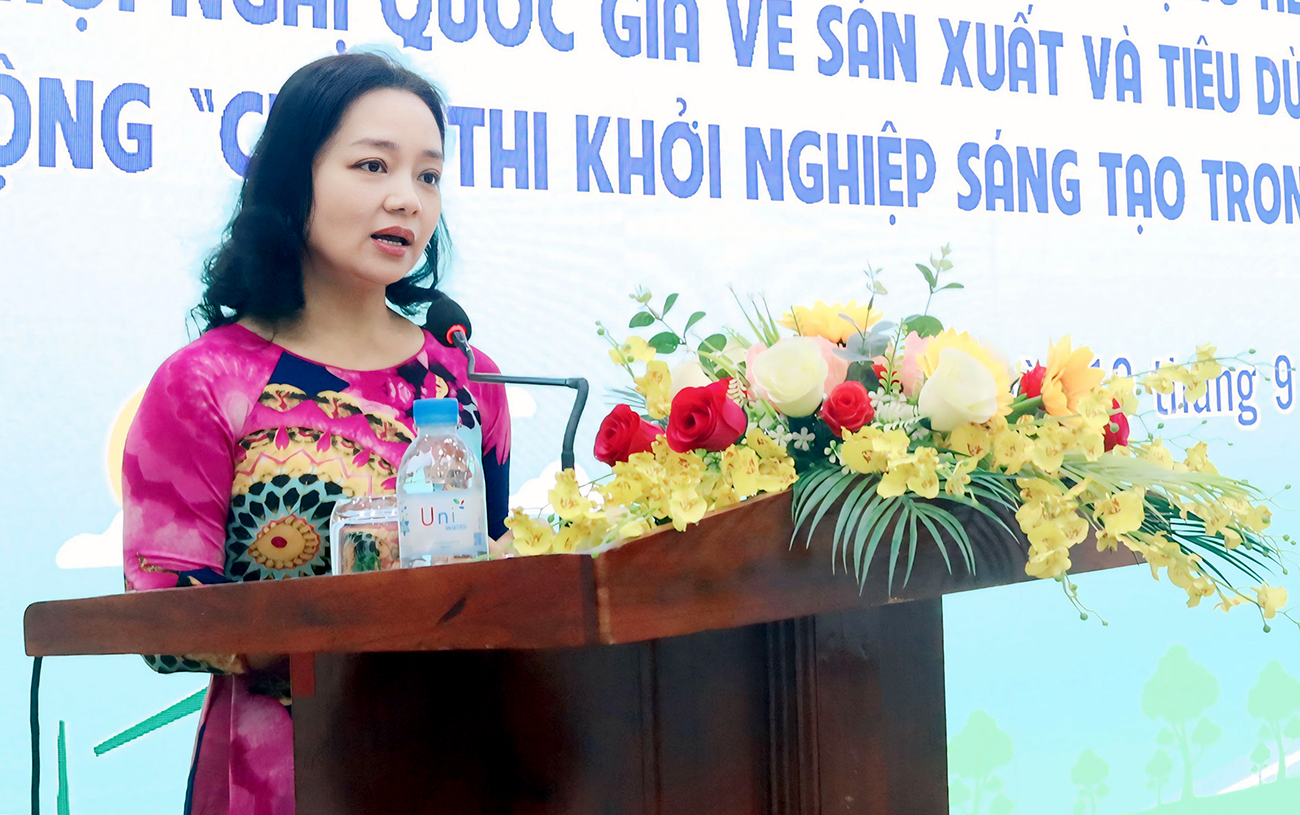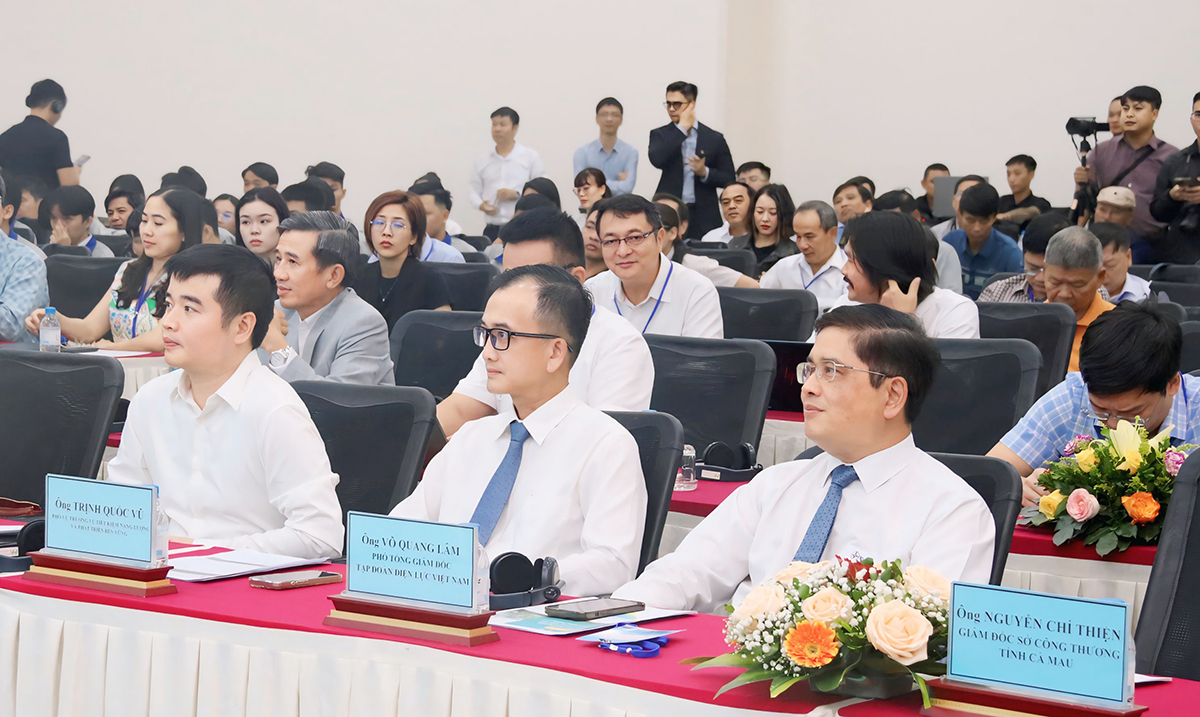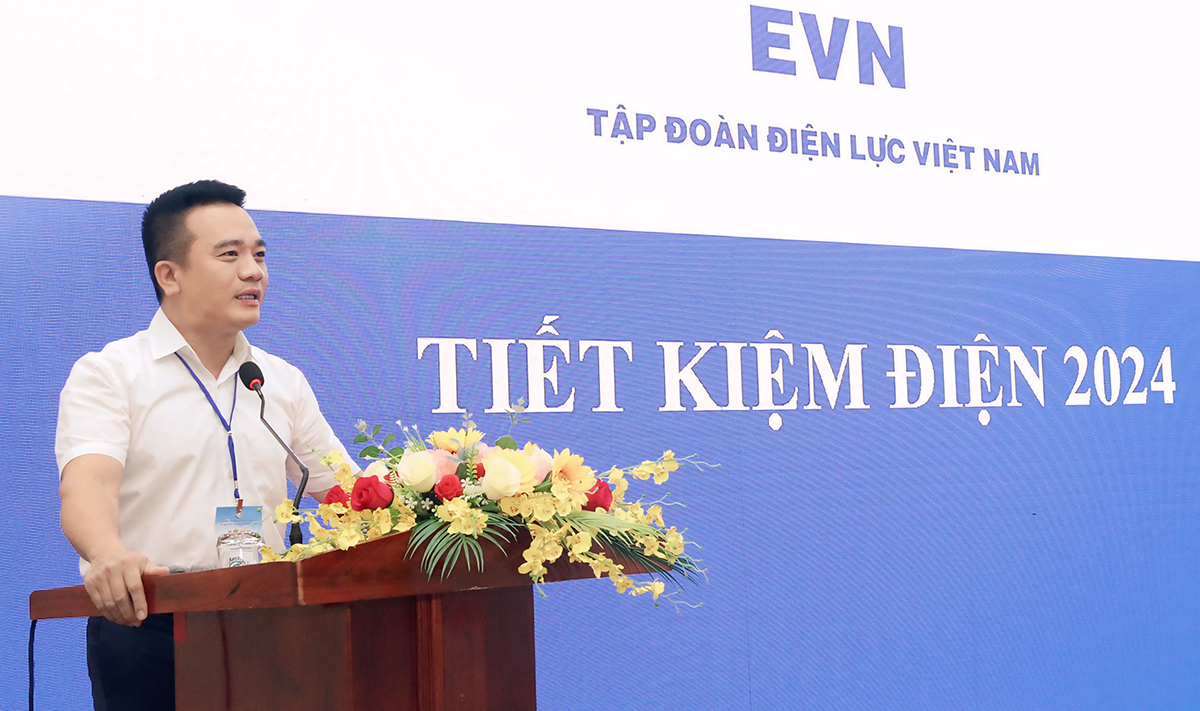
Ms. Nguyen Thi Lam Giang, Director of Department of Energy Saving and Sustainable Development, Ministry of Industry and Trade, delivering opening speech at Conference
The economical and efficient use of electricity plays an increasingly important role in ensuring electricity supply, preserving national energy resources, protecting the environment, and mitigating the impacts of global climate changes.
On March 13, 2019, the Prime Minister issued Decision No. 280/QD-TTg approving the National Energy Efficiency and Conservation Program for the period 2019-2030 (VNEEP3 Program) with the goal of savings of 5-7% of total national energy consumption in the period to 2025 and reaching 8-10% in the entire period from 2019 to 2030, equivalent to about 60 million tons of oil equivalent (TOE).
The electricity saving program has achieved a national electricity saving rate of > 2% annually in the period 2020-2023.

EVN’s Vice President Vo Quang Lam attending Conference
At the conference, Vietnam Electricity (EVN), Departments of Industry and Trade of some provinces and cities shared the implementation results of the VNEEP3 Program and the Prime Minister’s Directive 20 of.
In particular, EVN’s Deputy Head of Business Department Tran Viet Nguyen said that recently EVN has synchronously deployed solutions to implement electricity saving targets according to Directive 20 of the Prime Minister, including: Annually saving at least 2% of total electricity consumption; Reducing peak capacity of the national power system through implementing demand side management (DSM) and demand response (DR) programs.
Specifically, EVN has closely coordinated with agencies, political organizations, unions from central to local levels, and media and press agencies to organize communication programs on electricity saving, such as "Earth Hour", "Family saving electricity", "Saving electricity in schools", and competitions on electricity saving initiatives; Using multi-channel communication such as Call Centers, paper newspapers, electronic newspapers, radio - television, websites and social networks (Fanpage, Youtube, Tiktok, Zalo) to communicate about saving electricity; At the same time, carrying out communication activities through hanging banners, distributing leaflets, parades, organizing competitions, and providing direct advice on saving electricity.
In addition, EVN jointly organized competitions and events on electricity saving such as "Contest to learn about the economical use of energy", "Energy efficiency award", "Newspaper award on electricity saving", programs launched by the Ministry of Industry and Trade and press agencies; Signing commitments with customer groups to achieve electricity saving targets according to Directive No. 20, such as public sector (minimum 5%); public lighting (minimum 30%), industrial production (minimum 2%) and service business (minimum 2%); Signing agreements with industrial manufacturing customers with electricity consumption ≥ 1 million kWh/year for participating in the DR program and shifting electrical loads away from peak hours of the power system during hot months (from April to July)..

Deputy Head of EVN’s Business Department Tran Viet Nguyen delivering presentation on EVN's 2024 Electricity Saving Program at Conference
Particularly at member units, EVN has thoroughly applied all electricity-saving measures at the headquarters and offices of the units, at least equal to 10% of annual electricity consumption; Establishing an energy management section to check and assess monthly electricity savings; disseminating electricity saving regulations to employees and launching savings movements for employee families; Applying electricity saving models such as ISO 50001, smart building management systems, energy-saving equipment; Including electricity saving in work evaluation criteria and rewarding units that do well.
Translator: Vân Ly
Share